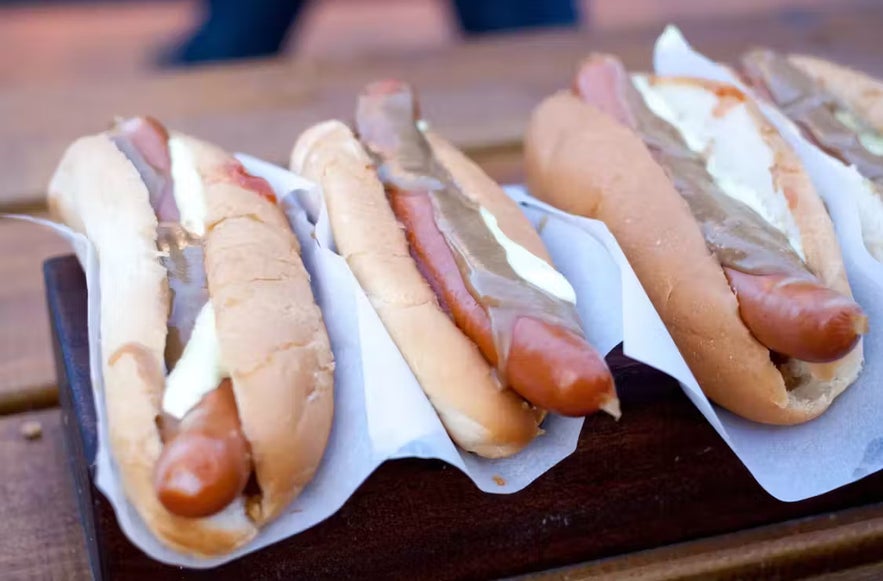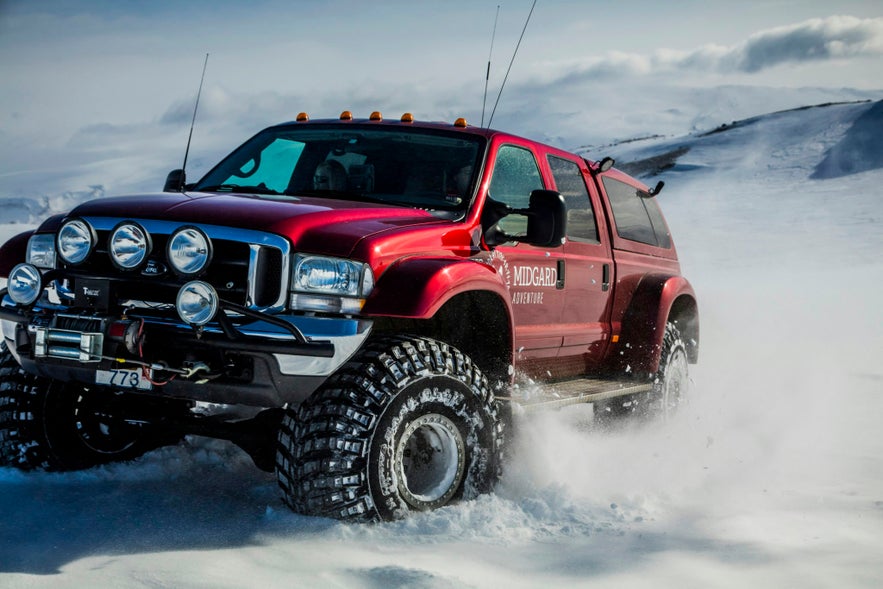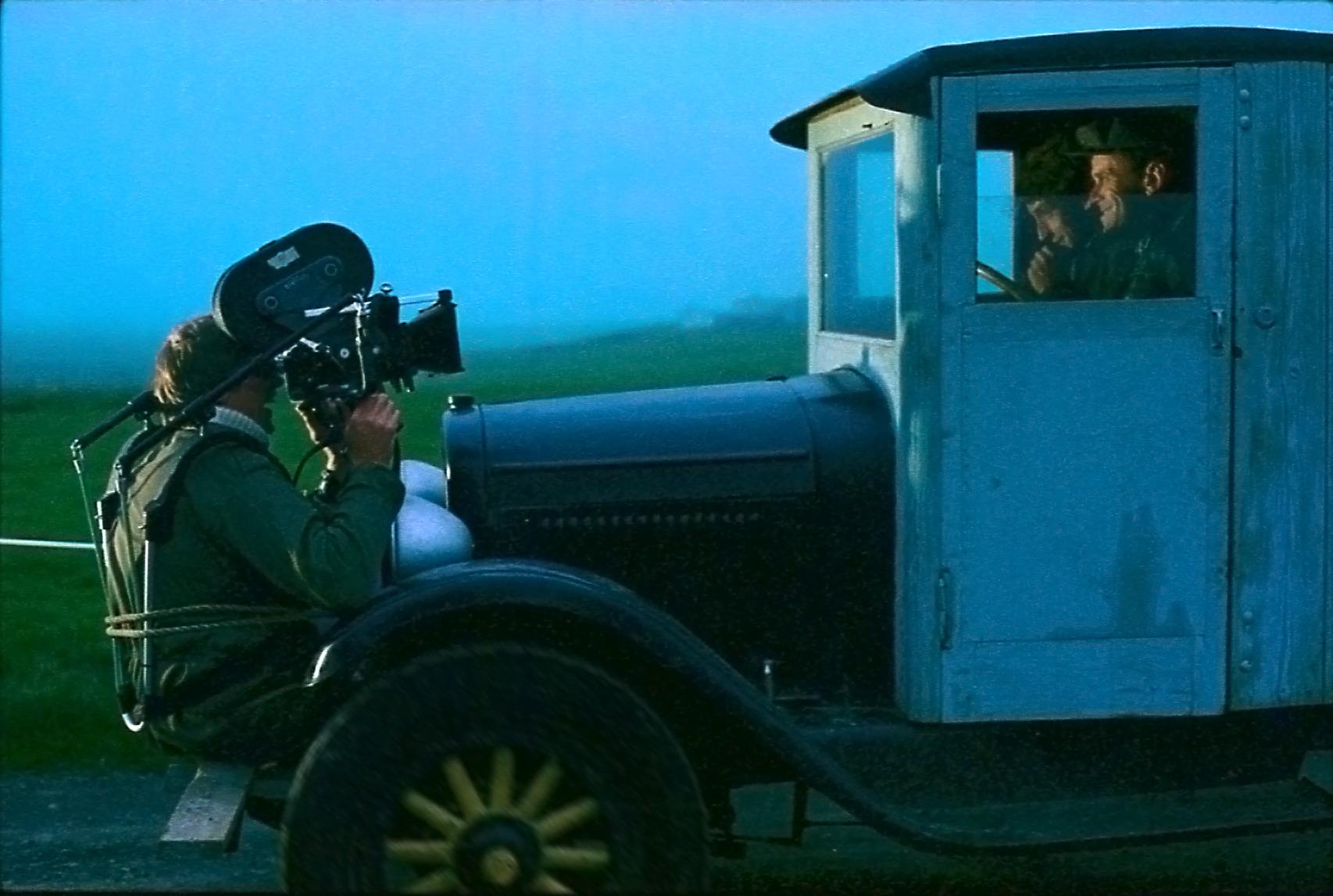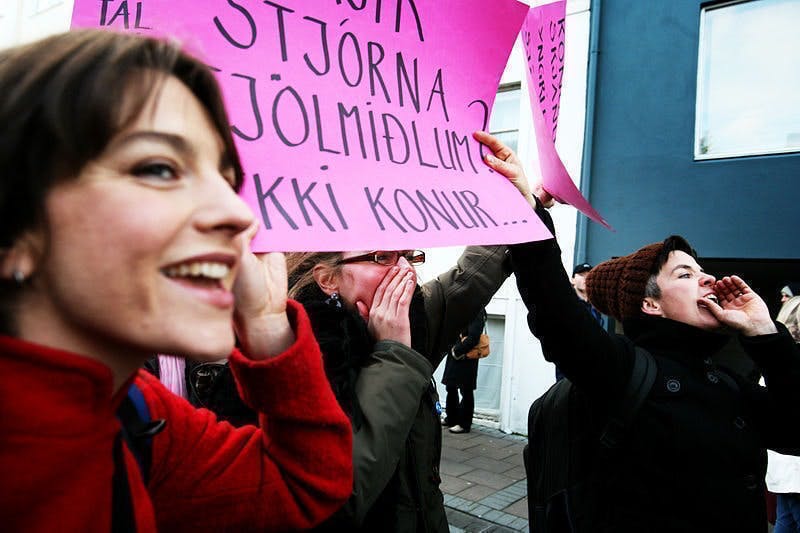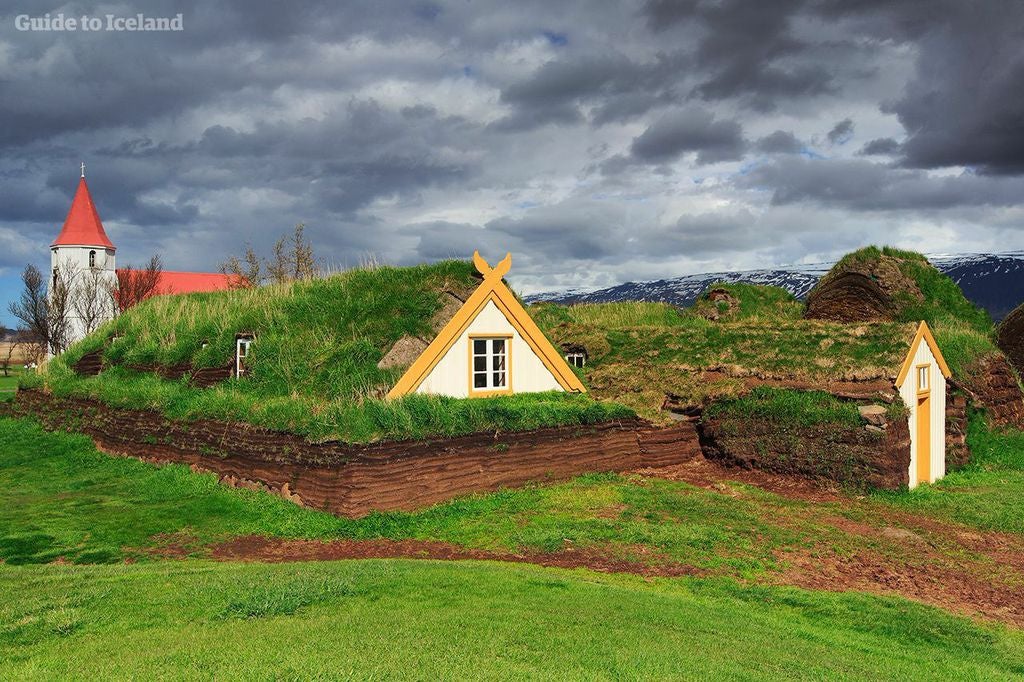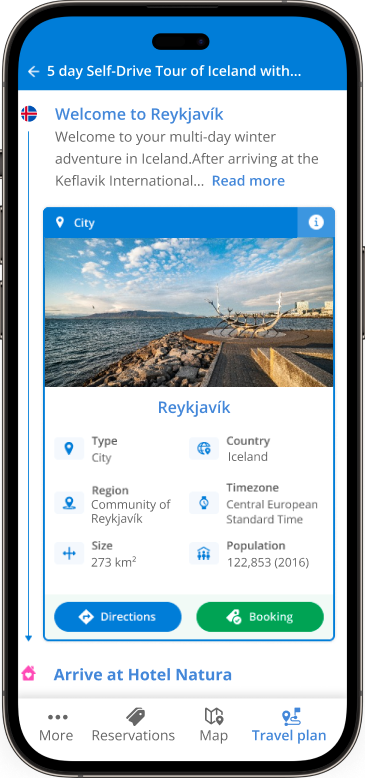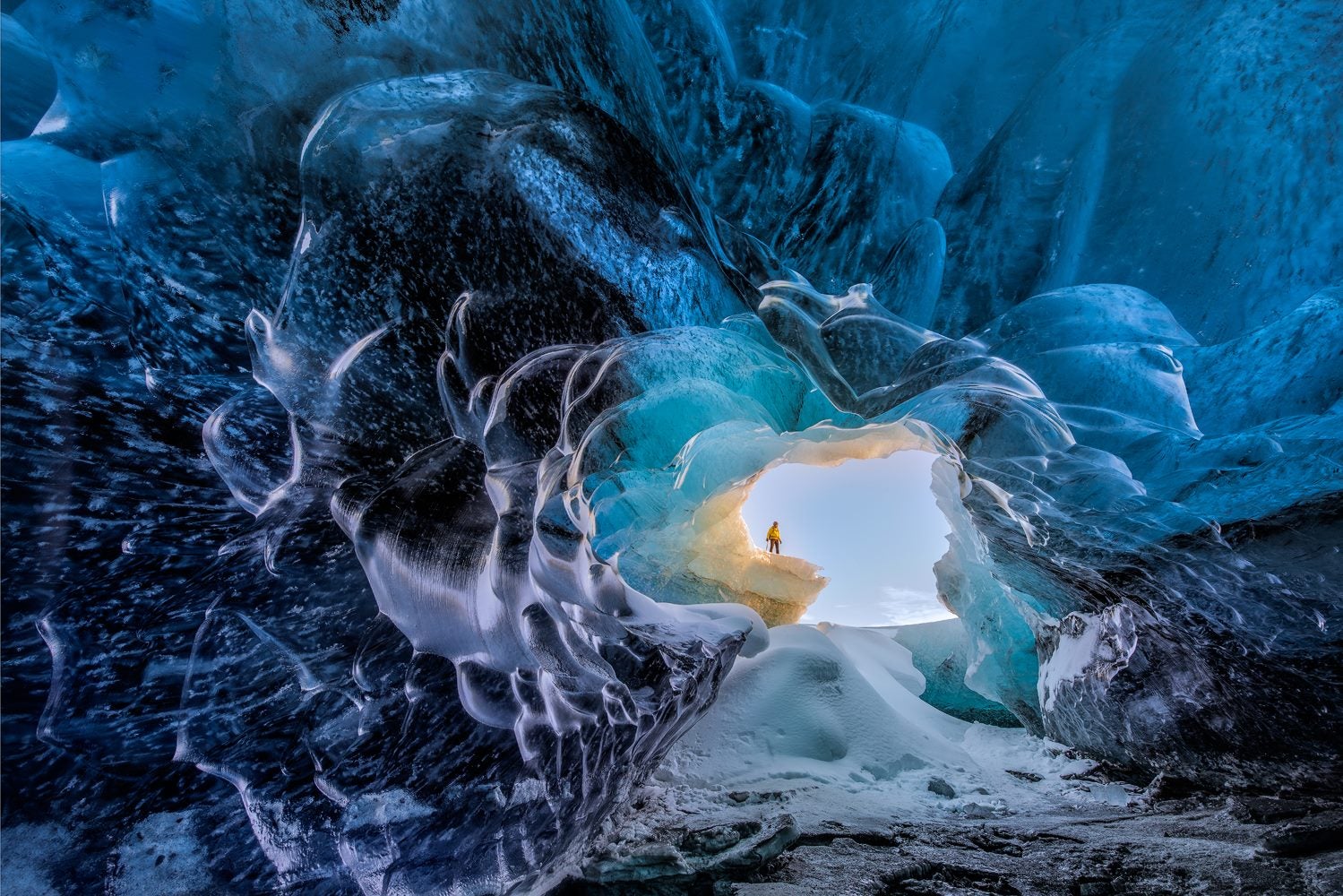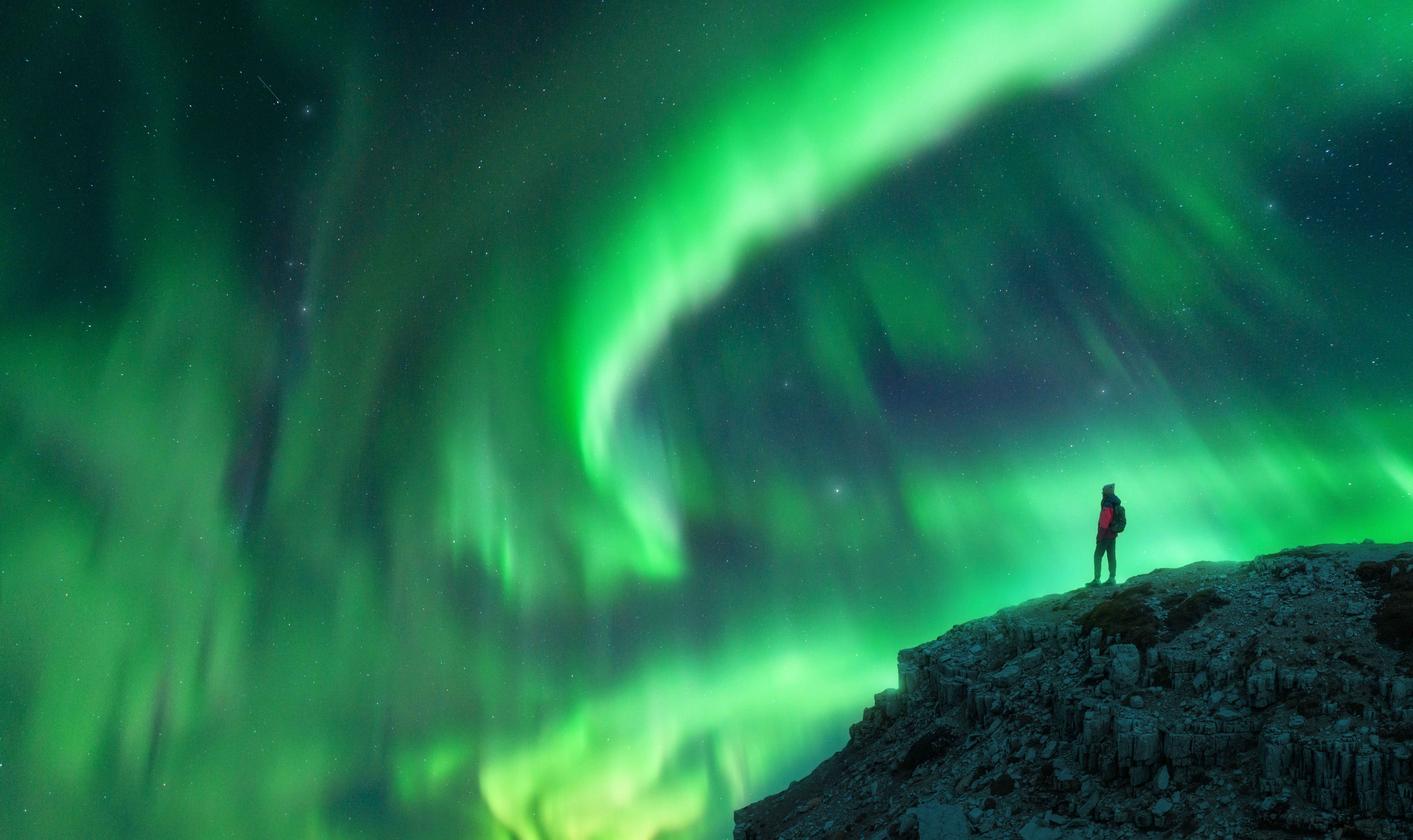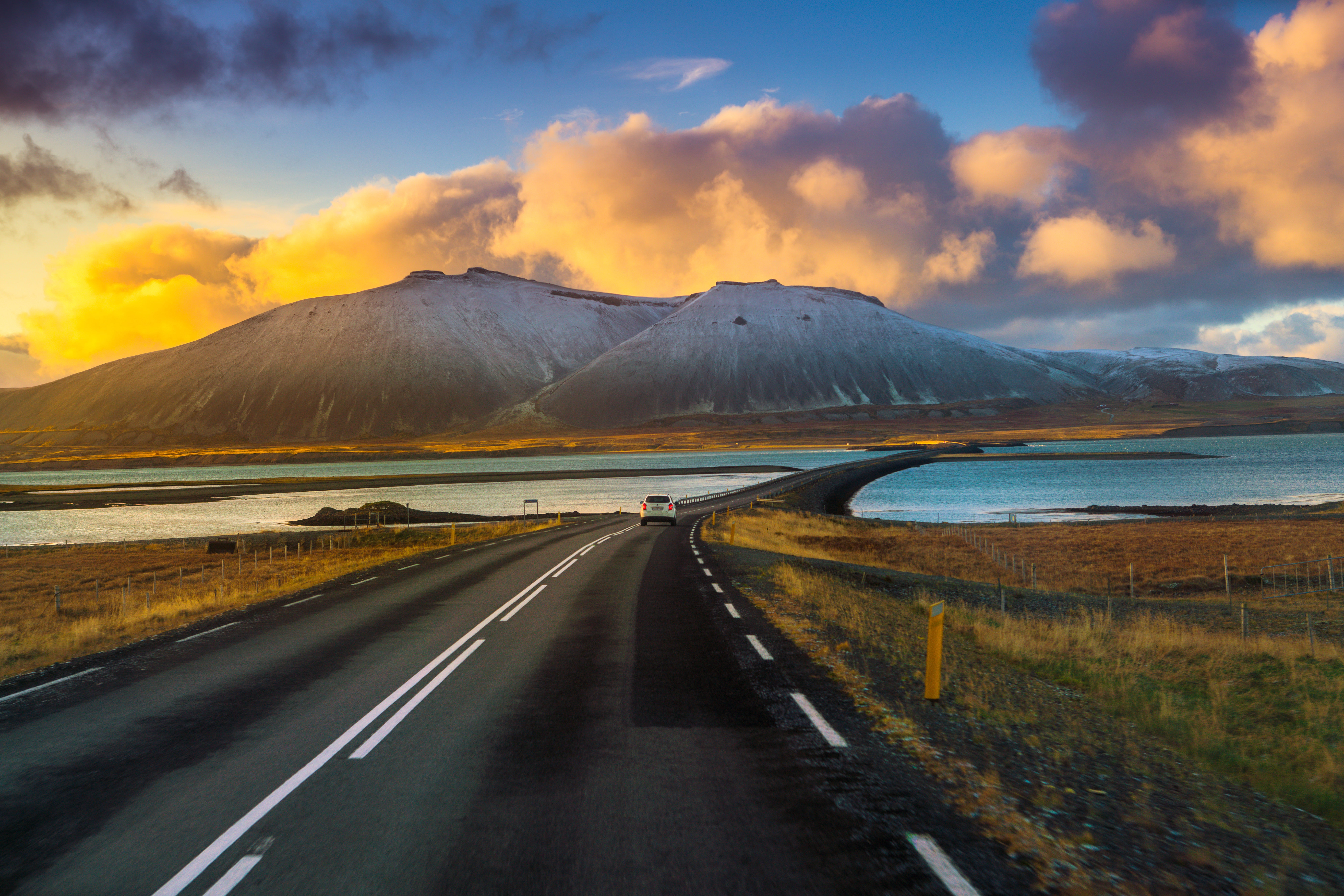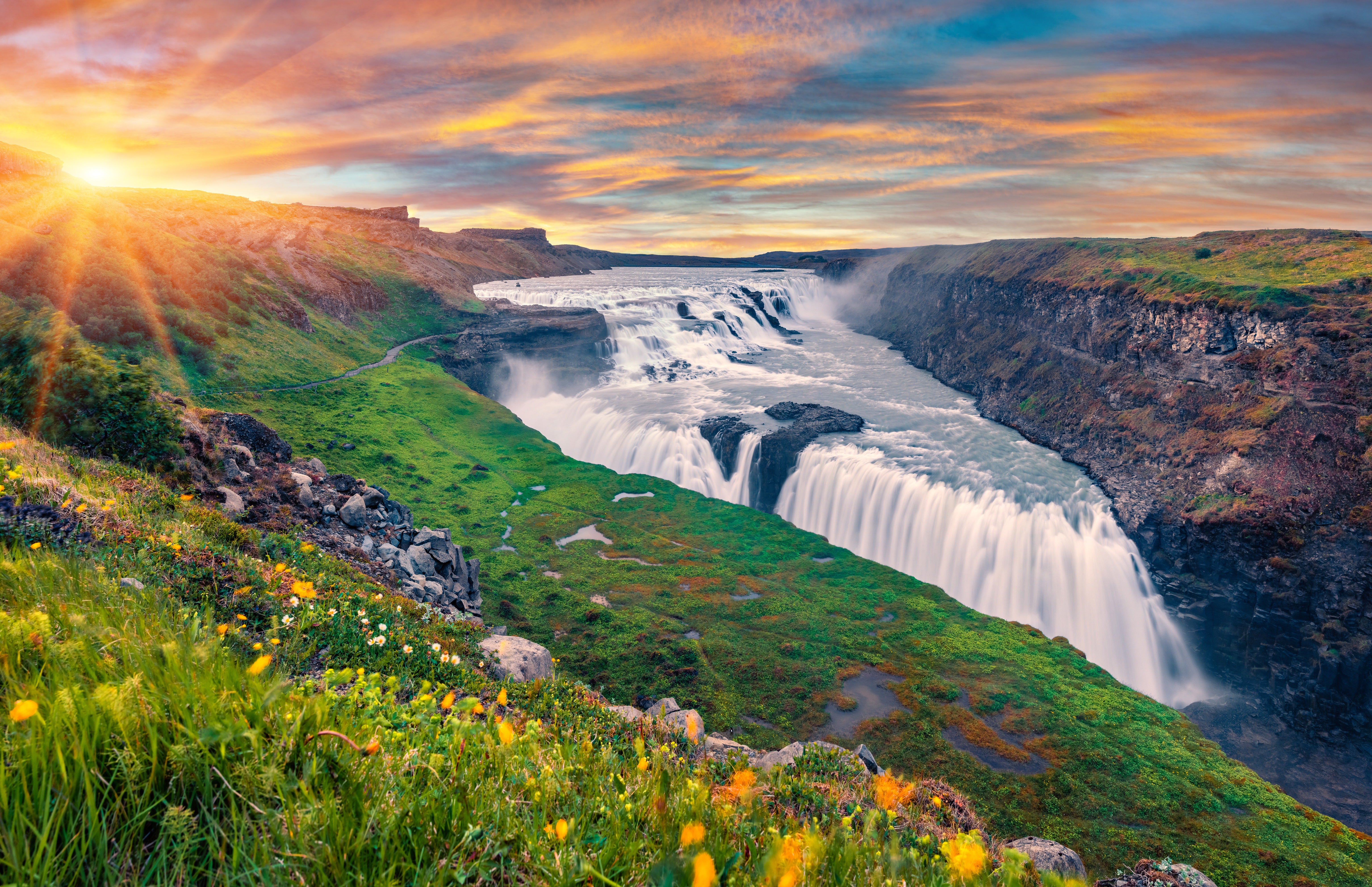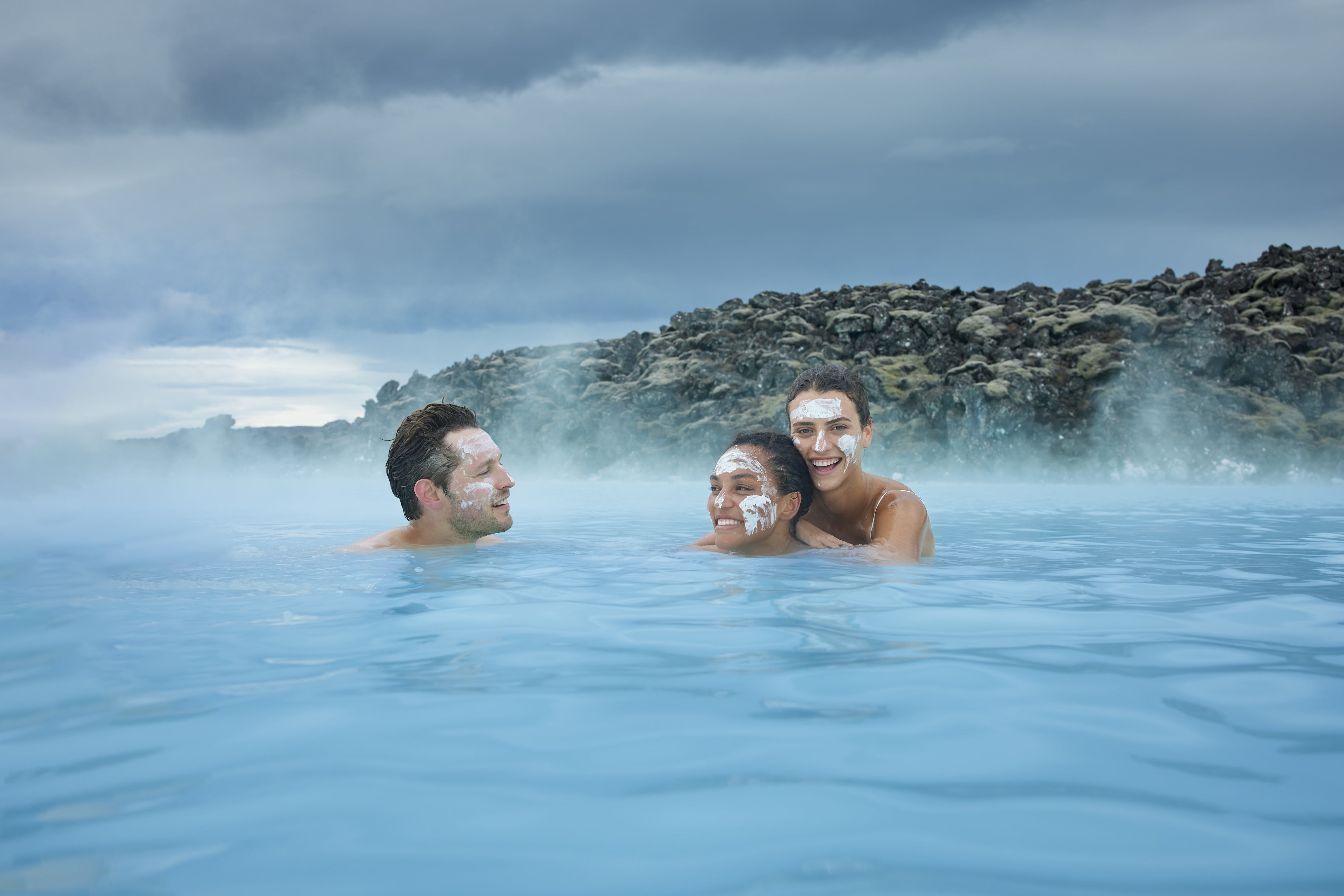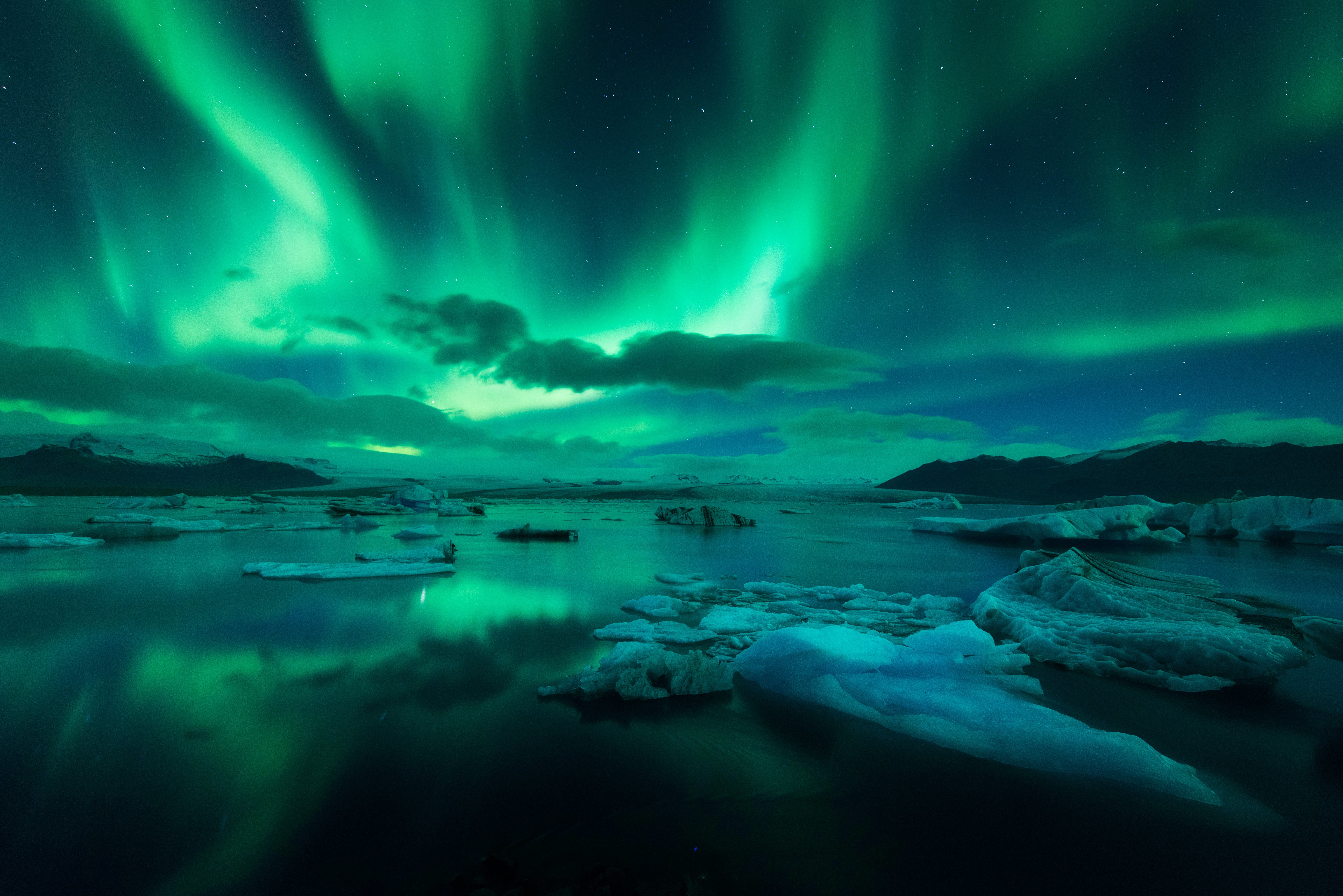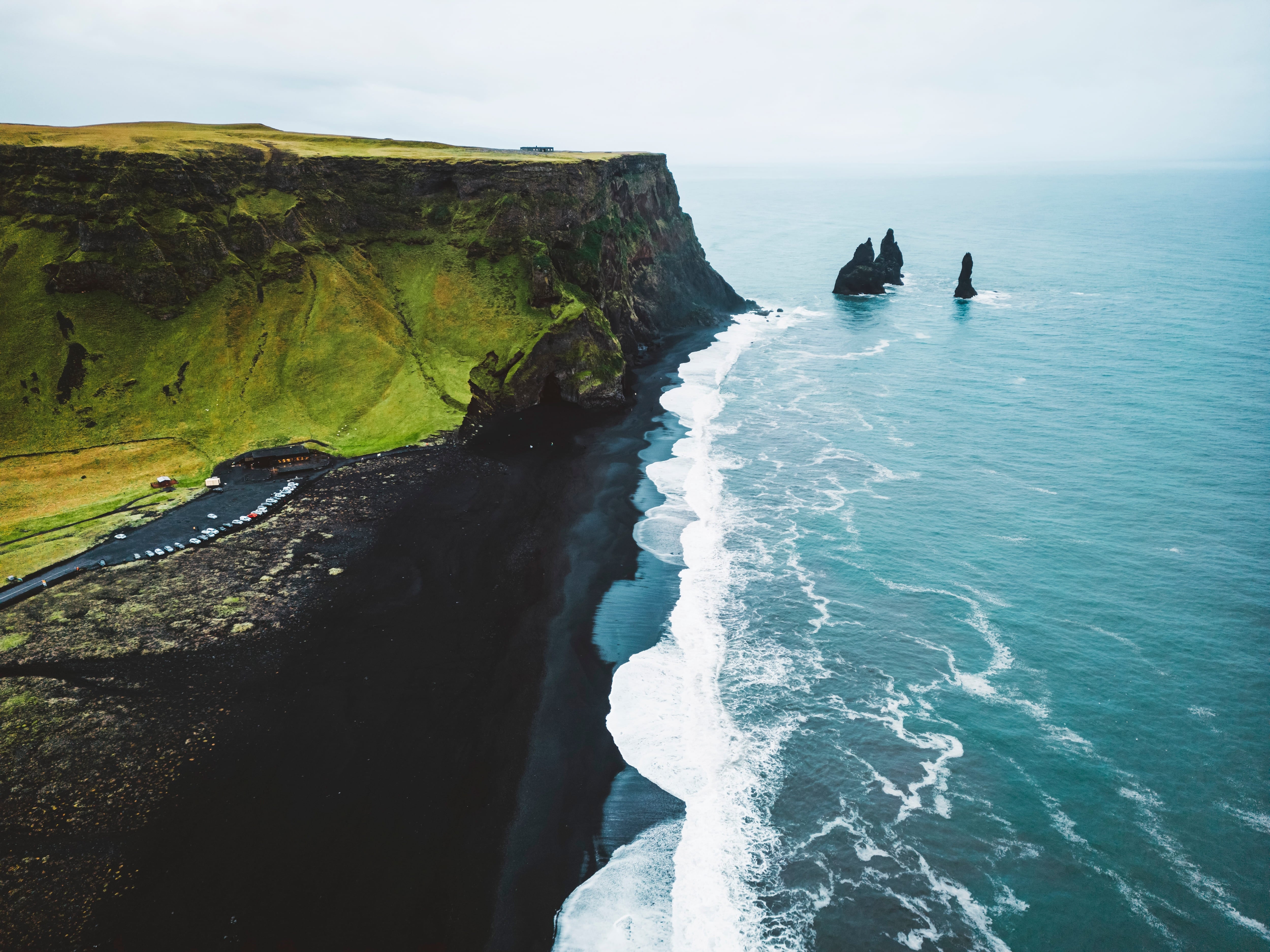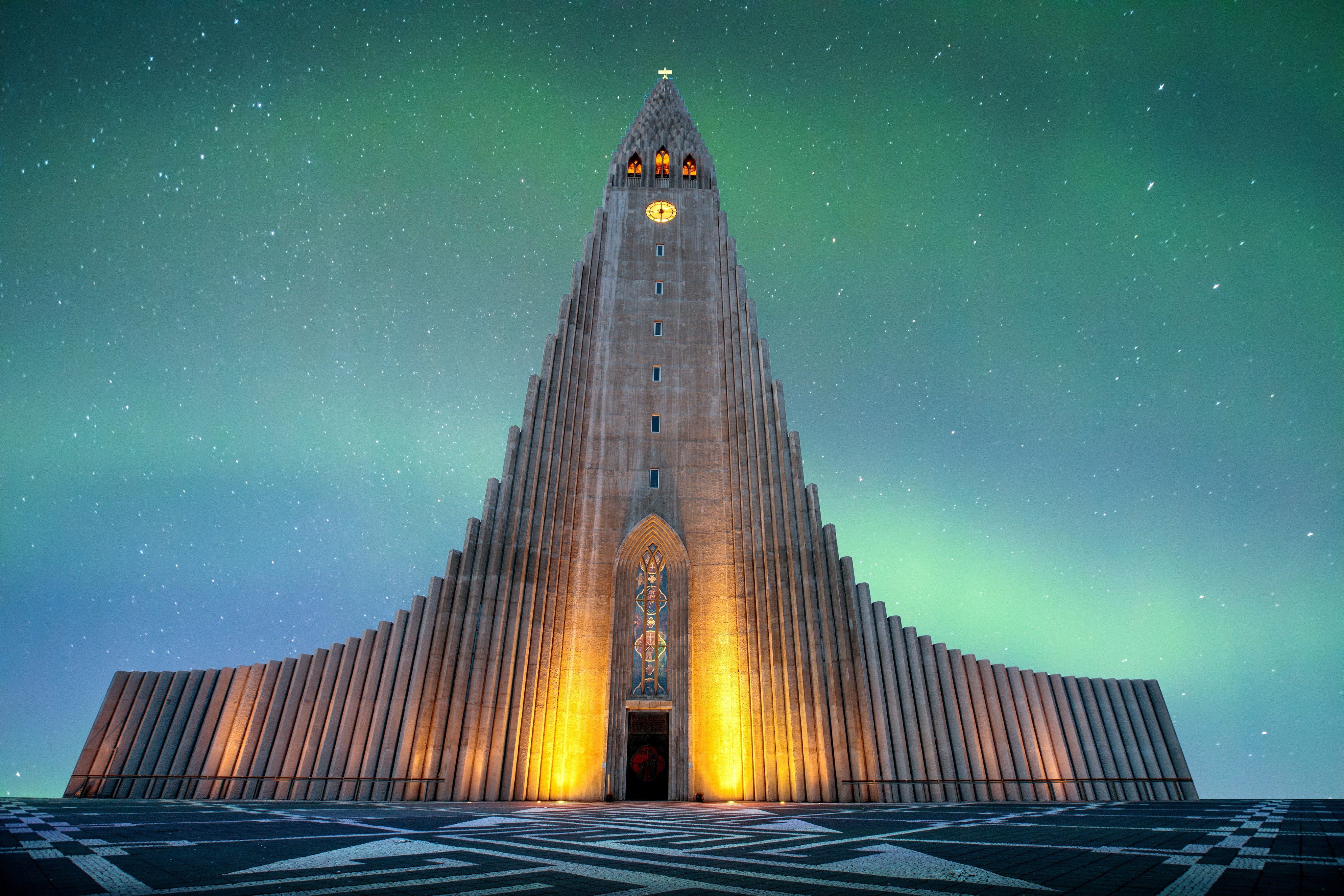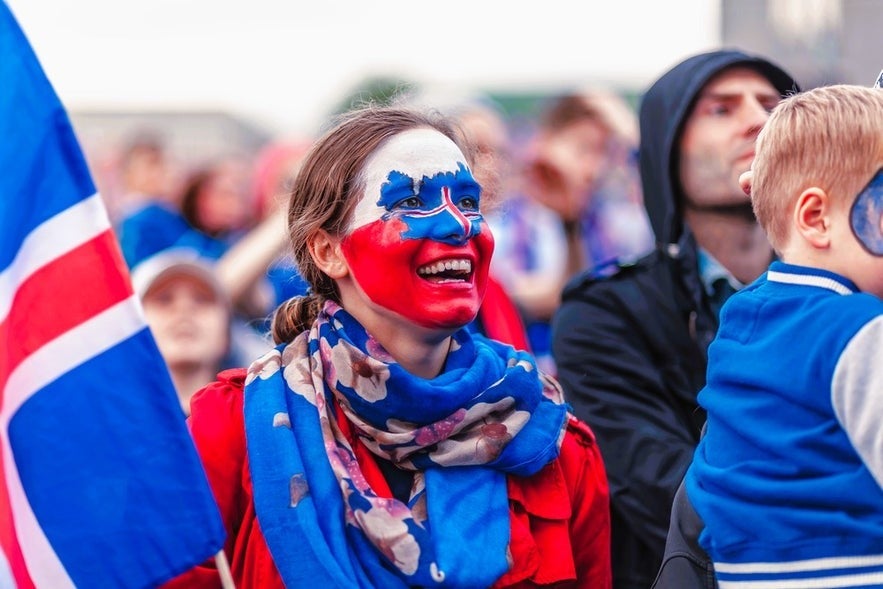
Get to know Icelandic people and the weird and wonderful quirks that reveal the character of the culture. Beyond glaciers, volcanoes, and northern lights, Icelanders stand out for their humor, creativity, and resilience.
Traditions, storytelling, and a shared respect for the land all play a central role in Icelandic life. Joining culture tours gives travelers a closer look at these values through everyday customs such as the unique naming system, the national love of ice cream, and the jokes that brighten even the darkest winter days.
Why You Can Trust Our Content
Guide to Iceland is the most trusted travel platform in Iceland, helping millions of visitors each year. All our content is written and reviewed by local experts who are deeply familiar with Iceland. You can count on us for accurate, up-to-date, and trustworthy travel advice.
Visitors can soak in this culture on hot spring tours, where relaxing in geothermal pools shows why swimming is a cherished pastime. Walking tours, especially with Reykjavik's popular history and culture walk, highlight how community life has shaped the nation through the centuries.
These customs may appear quirky at first, yet together they reveal the warmth, humor, and individuality that make Icelandic people unforgettable. Read on to discover the weird and wonderful things about Icelanders.
Key Takeaways About Icelandic People and Culture
-
Icelandic last names are patronyms and matronyms, meaning they come from a parent’s first name rather than a family surname. This is why Icelanders always refer to each other by their first name.
-
Viking roots and strong community ties still shape Icelandic pride, seen in the nation’s family records and shared cultural identity.
-
Beer Day, celebrated each March 1, marks the end of Iceland’s 75-year beer ban and shows how modern Icelanders balance independence with celebration.
-
Swimming, bathing, and nudity are deeply ingrained parts of Icelandic life. Locals gather in geothermal pools to relax and socialize, and showering naked before swimming is simply a matter of hygiene.
-
Food culture blends comfort and creativity. Icelanders love their sauces, grill in any weather, and enjoy ice cream even in winter.
-
Parenting traditions like letting babies nap outdoors reflect trust, safety, and a close connection to nature.
-
Dark humor and confidence reveal Icelanders’ ability to stay positive through harsh conditions and celebrate achievements “per capita,” often with playful pride.
14. Icelanders Eat Ice Cream Even in Winter
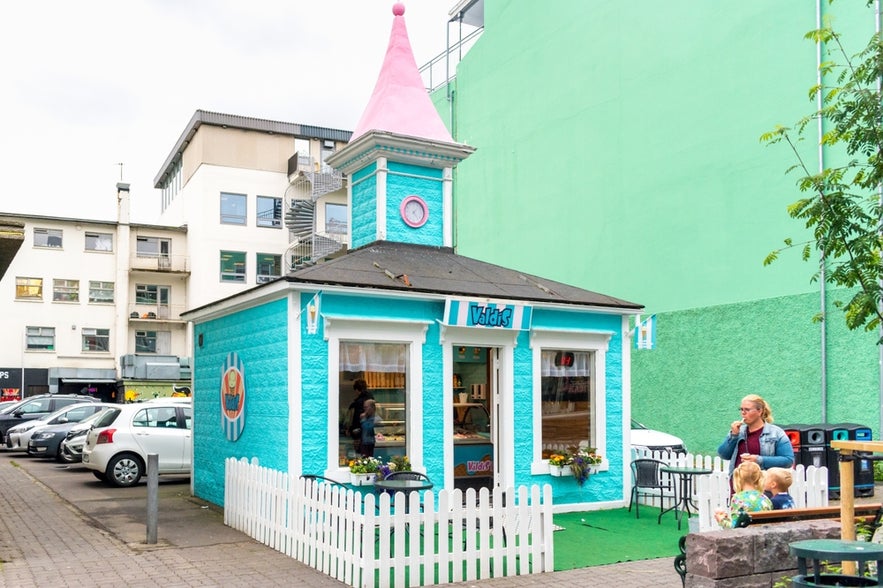 Eating ice cream in Iceland is a year-round tradition. The first isbud (ice cream shop) opened in the early 1930s, and weekend visits quickly became a family ritual. Parents passed the habit to their children, and now Icelanders enjoy ice cream no matter the season.
Eating ice cream in Iceland is a year-round tradition. The first isbud (ice cream shop) opened in the early 1930s, and weekend visits quickly became a family ritual. Parents passed the habit to their children, and now Icelanders enjoy ice cream no matter the season.
The treat itself is part of the appeal, and soft-serve, called softis, is piled high in cones or cups. Icelandic people prefer blending it into a bragdarefur, a custom mix of soft-serve and sweets such as candy, fruit, or cookies.
The tradition continues through isbiltur, or “ice cream joy rides.” Families and couples drive across town to their favorite shop, then sit in the warmth of the car while eating their cones.
13. Icelanders Grill All Year Round
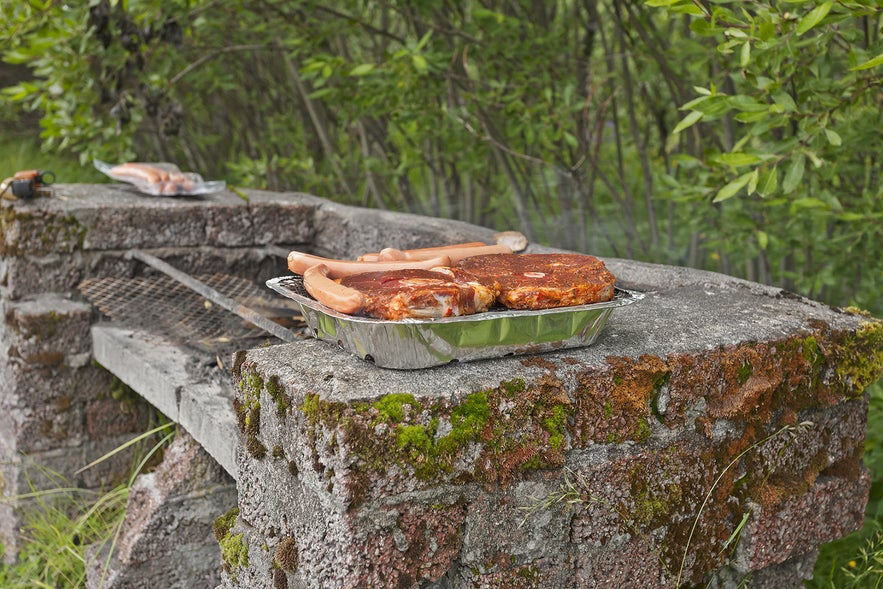 Grilling became a favorite pastime in Iceland as gas and charcoal grills found their way into backyards across the country. Families quickly made weekend cookouts part of their routine, and before long, Icelanders were grilling through every season.
Grilling became a favorite pastime in Iceland as gas and charcoal grills found their way into backyards across the country. Families quickly made weekend cookouts part of their routine, and before long, Icelanders were grilling through every season.
Public-use grills are also common in parks around Reykjavik, giving people an easy way to enjoy outdoor cooking together. Come rain or shine, locals gather to grill lamb, fish, and skewers over a burning hot flame, topping them with their favorite sauces in quantities that often surprise visitors.
These days, grilling is less about the weather and more about being together. Icelanders know that if you wait for sunshine in this country, you might be waiting forever, so they fire up the grill in wind, rain, or snow.
12. People in Iceland Are Passionate About Sauce
Icelanders developed a love for sauces because most traditional Icelandic food was once very simple. For centuries, food focused on fish, lamb, and potatoes, with little variety in seasoning. Sauces added flavor and choice, turning plain ingredients into something more exciting.
Over time, Icelandic people created a unique sauce for everything. You can find specific sauces for pizza, pitas, fries, chips, vegetables, and hamburgers. There are also different sauces for fish, meat, and poultry. Icelandic hot dogs come with three sauces, and even ice cream is drowned in caramel, chocolate, or licorice syrup.
For Icelanders, sauce means creativity and comfort. It brings variety to the table and makes everyday meals feel special, which is why condiments are such a big part of Icelandic food culture.
11. Icelanders Leave Babies To Nap Outside
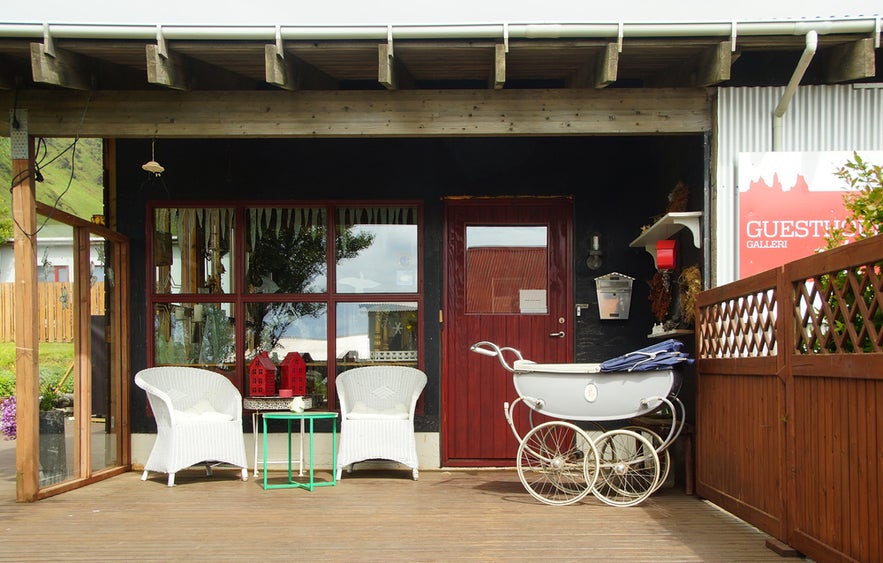 Icelanders leave babies to nap outside as they believe fresh air helps children sleep longer and stay healthier. The habit took root because traditional homes were often crowded and smoky, and tuberculosis was a serious concern.
Icelanders leave babies to nap outside as they believe fresh air helps children sleep longer and stay healthier. The habit took root because traditional homes were often crowded and smoky, and tuberculosis was a serious concern.
By 1926, a local doctor, Davíð Þorsteinsson, was already promoting outdoor life as part of good childcare. The rise of baby strollers made it simple to roll infants outdoors for their naps.
The custom continues since many parents notice their children rest more peacefully outdoors while bundled in warm clothing and blankets. What may look unusual to visitors is everyday life for Icelandic people, reflecting both their trust in the community and their comfort with outdoor living.
10. Icelanders Have a Christmas Book Flood
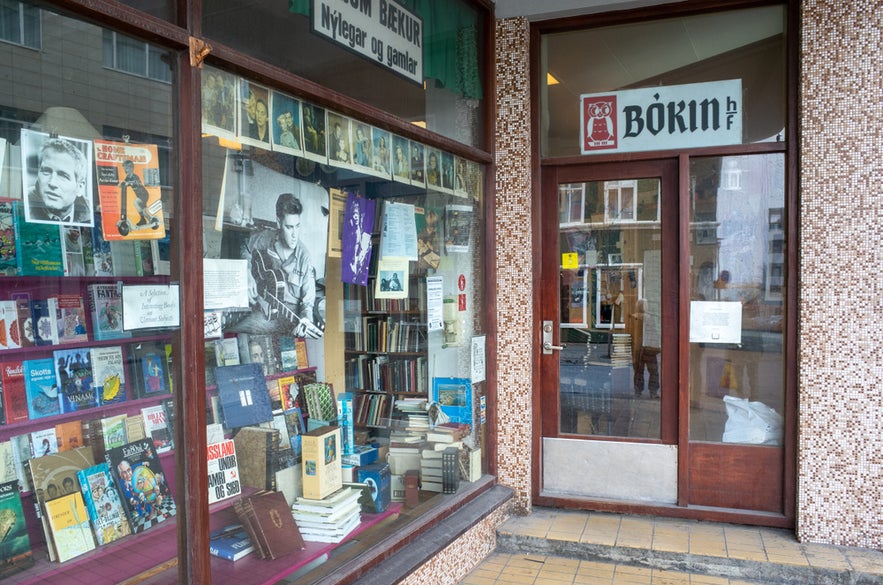 Many people have heard of Jolabokaflod, or the “Christmas Book Flood.” It’s often described as a national tradition where Icelanders exchange books and spend Christmas Eve reading together, but that’s a misconception.
Many people have heard of Jolabokaflod, or the “Christmas Book Flood.” It’s often described as a national tradition where Icelanders exchange books and spend Christmas Eve reading together, but that’s a misconception.
In reality, Jolabokaflod refers to the flood of new book releases that fills Icelandic stores in the weeks before Christmas in Iceland. The tradition began during World War II, when imported goods were scarce but paper was plentiful, so Icelanders turned to books as gifts.
That love of reading is still part of Icelandic culture today. Publishers release most new titles in late autumn, and households receive a catalog of the season’s books before the holidays.
Icelanders still give books as Christmas presents, though gifts of all kinds are exchanged. Some families might spend the evening reading after opening presents, but it isn’t a national custom.
9. People in Iceland Have a Lot of Monster Trucks
Icelanders love monster trucks as they make it possible to travel across the country’s rough terrain and unpredictable weather. These Super Jeeps are designed to handle deep snow, rocky roads, and glacial river crossings that ordinary cars cannot manage.
This began when Icelandic people started modifying trucks to explore Iceland’s interior, especially the Highlands. Here, unpaved F-roads require huge tires and powerful engines. In winter, Super Jeeps are often the only way to reach remote towns or chase the northern lights far from the city.
Today, both Icelanders and tour companies use these lifted trucks for adventure and work. Travelers can join Super Jeep tours to destinations such as Landmannalaugar, Thorsmork, and Eyjafjallajokull, where regular cars would never make it.
Monster trucks in Iceland reflect a mix of practicality and adventure. They show how Icelandic people adapt to the challenges of their environment with creativity and confidence.
8. Icelandic People Sometimes Speak on Inhalation
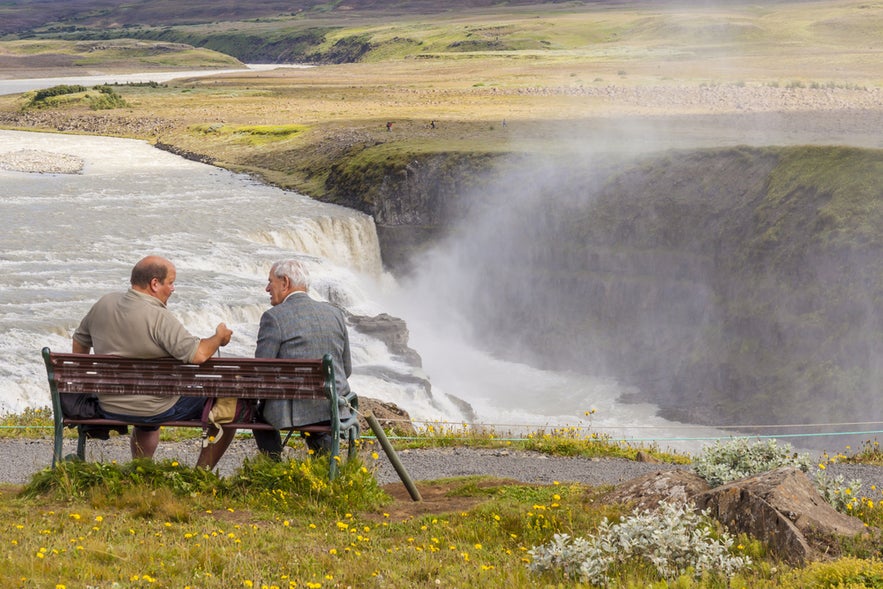 Icelanders speak on inhalation because it fits the rhythm of the language. The sound happens on that quick breath people take before speaking. You’ll often notice it with short words such as já (“yes”), nei (“no”), and jæja, which can mean “well” or “alright then.”
Icelanders speak on inhalation because it fits the rhythm of the language. The sound happens on that quick breath people take before speaking. You’ll often notice it with short words such as já (“yes”), nei (“no”), and jæja, which can mean “well” or “alright then.”
To visitors, it can sound like a small gasp, but it is completely normal in Icelandic speech. People often do it when agreeing with something obvious or replying in a casual way. This habit is a small but distinct feature of the spoken Icelandic language.
7. People in Iceland Have a Unique Sense of Humor
Icelanders have a unique sense of humor, shaped by hardship and isolation. Life on a remote island with long winters and harsh weather encouraged humor that is dark, clever, and often self-mocking.
This outlook has deep roots. In one of Iceland’s medieval sagas, the outlaw Gisli kills his rival, who simply says “hneit þar,” meaning “you got me there.” The moment captures the dry, matter-of-fact humor that has defined Icelandic people for centuries.
Modern Icelanders keep that same spirit. They joke about the weather, their tiny population, and even themselves. Few topics are off limits, and the darker the joke, the better the laugh.
A perfect example is comic artist and comedian Hugleikur Dagsson, whose work captures this sharp, dark wit. His books are sold in souvenir shops across the country and have become some of the most popular souvenirs in Iceland. The comic above is one of his creations.
6. Icelanders Are Obsessed With Swimming
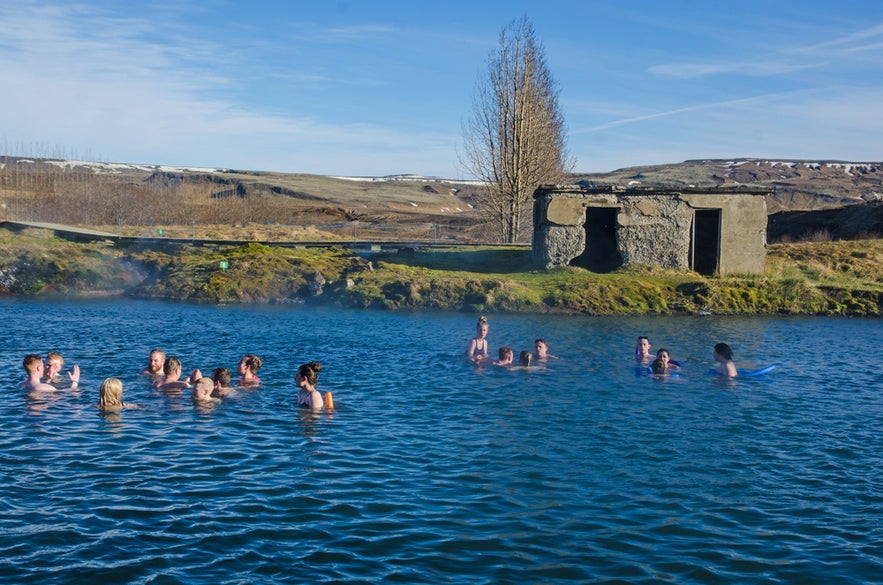 Icelanders are obsessed with swimming because geothermal pools have been part of their culture for centuries. The island’s volcanic energy keeps the water naturally warm, so bathing outdoors has always been both practical and enjoyable, even in the coldest weather.
Icelanders are obsessed with swimming because geothermal pools have been part of their culture for centuries. The island’s volcanic energy keeps the water naturally warm, so bathing outdoors has always been both practical and enjoyable, even in the coldest weather.
Hot springs have been used for bathing in Iceland since medieval times, and swimming lessons began in the Secret Lagoon in the early 1900s. When schools made swimming mandatory in 1943, it became a tradition that most Icelanders grew up with.
Today, every town in Iceland has at least one public pool, including the many swimming pools in Reykjavik. In 2023, Icelandic swimming culture was even nominated for inclusion on UNESCO’s list of Intangible Cultural Heritage.
5. Icelanders Are Comfortable With Nudity
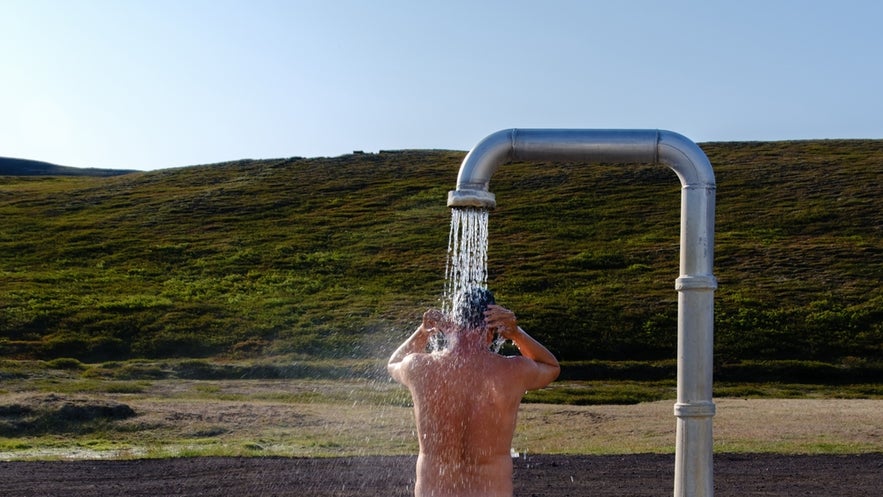 Icelanders tend to be easygoing about nudity, treating it as something natural and hygienic. Before entering any pool, everyone showers without a swimsuit to keep the geothermal water clean.
Icelanders tend to be easygoing about nudity, treating it as something natural and hygienic. Before entering any pool, everyone showers without a swimsuit to keep the geothermal water clean.
Changing rooms and showers are gendered, and everyone is expected to wash thoroughly before entering the pool. For visitors, it may feel uncomfortable at first, but everyone is there for the same reason: to relax in the warm water for a good soak.
Those who prefer privacy can find it at larger facilities like the Blue Lagoon or Sky Lagoon, where enclosed showers are available. Still, public bathing traditions run deep in Icelandic culture. Many locals also bathe nude in remote hot springs or take cold dips in the sea.
This openness extends beyond pools. Public breastfeeding is normal and widely accepted, and a member of parliament once did so during a session without causing controversy.
4. Icelanders Banned Beer Until 1989
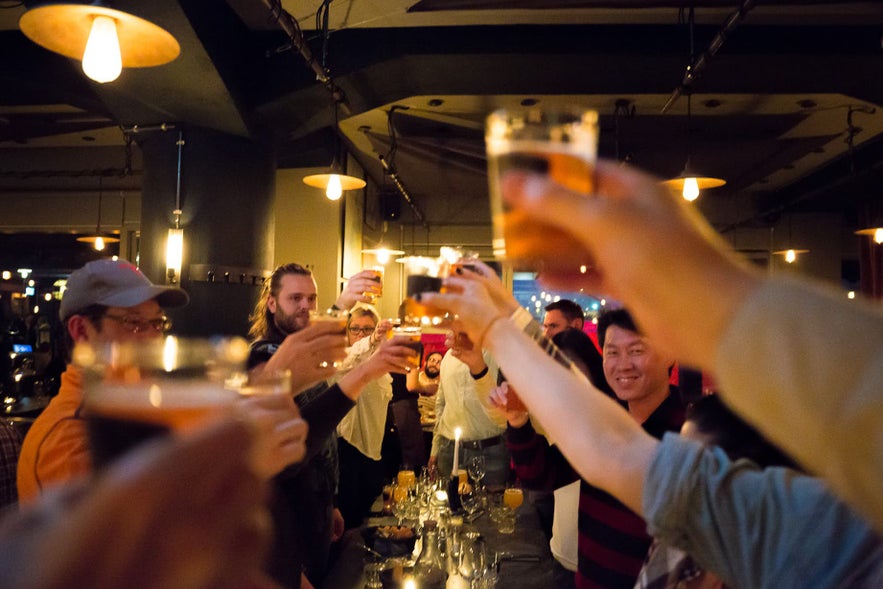
Beer was banned in Iceland for nearly 75 years because authorities worried it would lead to excessive drinking. A nationwide alcohol ban began in 1915, but while wine and spirits were later allowed again, beer stayed illegal.
The ban finally ended on March 1, 1989, a date now celebrated across the country as Bjordagur, or Beer Day. Every year, locals raise a pint to mark the return of beer to Icelandic life.
Even today, alcohol is still tightly regulated. It can only be bought at Keflavik International Airport or in Vinbudin, the state-run liquor stores that Icelanders jokingly call Rikid (“The State”). But with a growing craft scene, beers in Iceland have firmly reclaimed their place in local culture.
3. People in Iceland Usually Don't Have Family Names
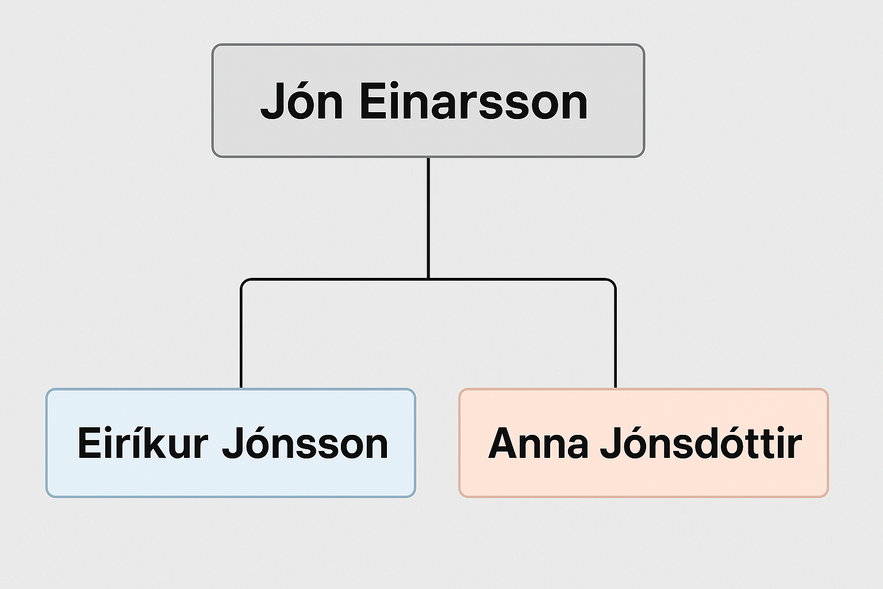
Most people in Iceland take one of their parents’ names, adding -son (son) or -dóttir (daughter) to create their last name. This means that parents and children, or even brothers and sisters, often have different surnames.
A few inherited surnames exist in Iceland, often from foreign or Danish roots, but they are rare. Women also keep their names after marriage since they do not become the “daughter” of their husband’s father or mother.
In daily life, Icelanders call one another by their first names, including teachers, doctors, and political leaders. Even famous figures in Iceland, like Björk (Guðmundsdóttir), are never addressed by their last names.
2. The People of Iceland Are Proud of Their Viking Roots
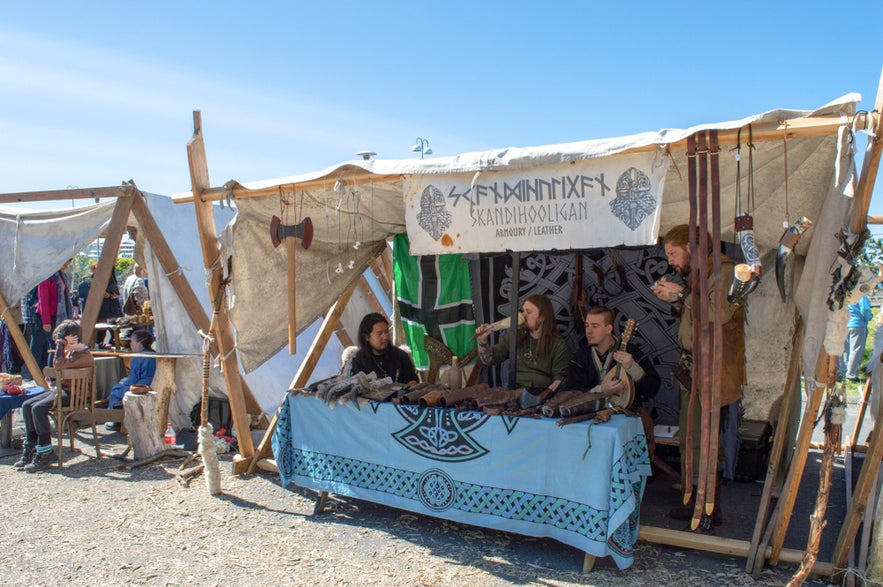
Icelanders are proud of their Viking roots because their history, language, and traditions all come from the Norse settlers who arrived in the late 9th century. These early Vikings built farms, created laws, and founded the world’s first parliament at Thingvellir National Park in 930.
Their spirit of independence and endurance still shapes Icelandic identity today. For more than a thousand years, Iceland remained small and isolated. Modern Icelanders can trace their ancestry to these first settlers through records that have been preserved for centuries.
Iceland is one of the most thoroughly documented societies in the world, with its first full national census completed in 1703. Today, Icelanders can trace their family lines through Islendingabok, or The Book of Icelanders, an online database opened to the public in 1997.
Some mistake this database for a dating app that prevents relatives from pairing up, due to a 2013 project by a group of college students that went viral. In reality, the real purpose of the database is to preserve Iceland’s detailed family records and make the country’s heritage accessible.
1. Icelanders Are the Best in the World (Per Capita)
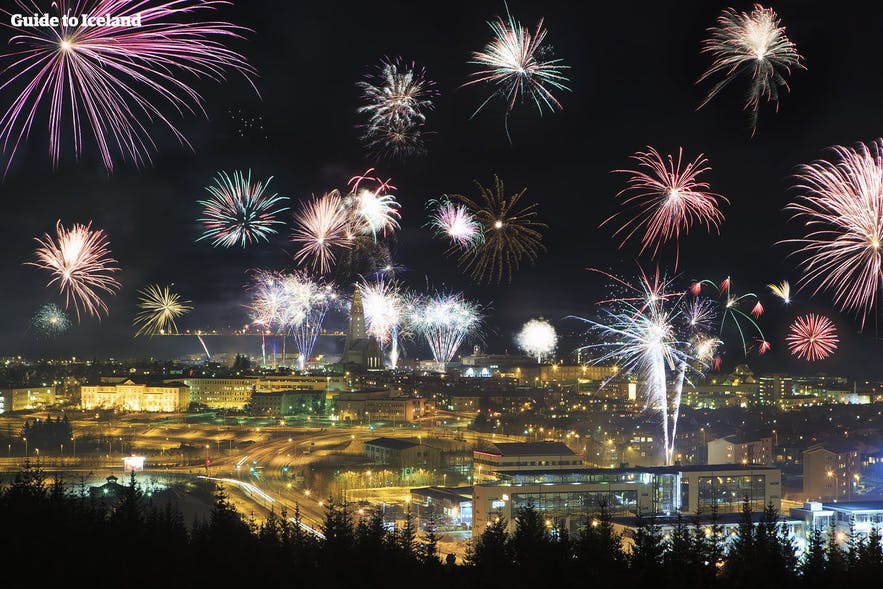
Icelanders often joke that they’re the best in the world, per capita, because their small population achieves remarkable things on a global scale. With just under 400,000 people, Iceland produces more champions, artists, and innovators than many much larger nations.
Icelanders have claimed Miss World titles, World’s Strongest Man wins, and international recognition in music, literature, and sports. Iceland is also among the global leaders in gender equality, renewable energy, peace, and quality of life.
The phrase “Ísland, best í heimi,” meaning “Iceland, best in the world,” captures this blend of pride and humor. It celebrates how a small island consistently punches above its weight, proving that population size does not limit success.
FAQs About Icelandic People and Culture
Get quick answers to common questions about Icelandic people, their culture, and the traditions that make life in Iceland so unique.
What are Icelandic people known for?
Icelandic people are known for their friendliness, independence, and creativity. They have strong community values, a love for nature, and a deep respect for equality and education.
Do Icelanders believe in elves?
Many Icelanders keep an open mind about elves and hidden people, known as huldufolk. While not everyone believes in them, folklore in Iceland is still an important part of culture and shapes how people connect with the landscape.
Why is Iceland one of the happiest countries in the world?
Iceland often ranks among the world’s happiest nations because of its strong social support, gender equality, access to nature, and low crime rates. The sense of community and safety contributes to daily well-being.
How do Icelanders spend their free time?
Icelanders enjoy outdoor activities like hiking, swimming, and soaking in hot springs. They also value reading, music, and social gatherings at local pools or cafes, even in winter.
What language do Icelanders speak?
Icelanders speak Icelandic, a language that has changed very little since the Viking Age. Most people also speak fluent English, especially in Reykjavik and other major towns.
Are Icelanders friendly to tourists?
Yes, Icelanders are generally very welcoming to visitors. They’re used to meeting travelers from all over the world and are proud to share their culture, traditions, and stories.
Do Icelanders still have Viking traditions?
While modern life has changed, Icelanders still preserve Viking heritage through festivals, sagas, and traditional crafts. The language, naming system, and national pride all trace back to Viking origins.
Why are there so few people in Iceland?
Iceland’s small population comes from its isolated location and harsh environment. The island was settled in the 9th century, and despite modern growth, it still has around 400,000 residents.
How do Icelanders celebrate national holidays?
Icelandic holidays often involve outdoor gatherings, parades, and community events. National Day on June 17 celebrates independence with music, street performances, and family-friendly festivities across the country.
Why is Iceland considered one of the safest countries in the world?
Iceland has very low crime rates, high trust in law enforcement, and a strong sense of community. Even in Reykjavik, it’s common to see children playing outside or walking to school alone.
What food do Icelanders eat?
Traditional Icelandic cuisine includes lamb, fish, skyr, and rye bread baked in geothermal heat. Locals also enjoy modern twists on Nordic dishes, as well as favorite snacks like hot dogs and ice cream.
Discover What Makes Icelanders Unique
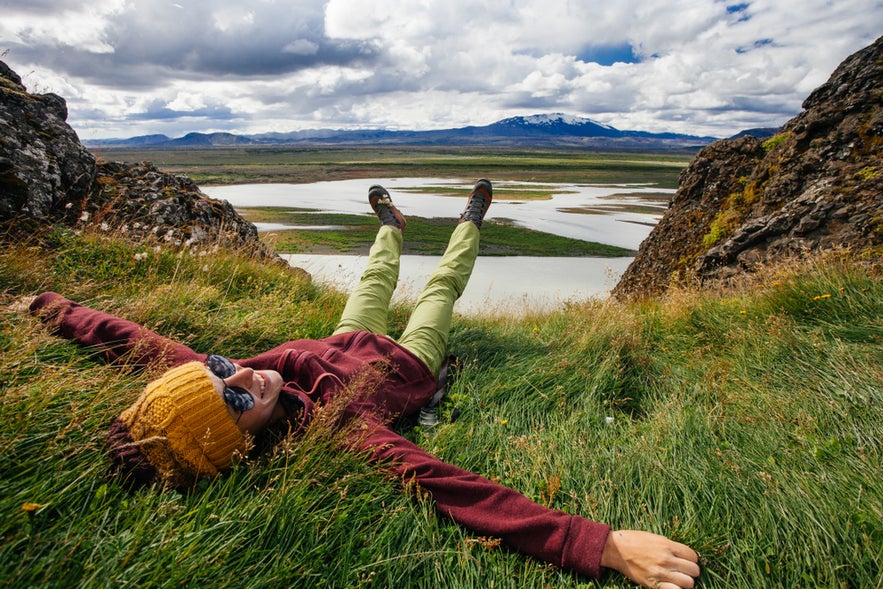 Rooted in Viking history and shaped by the North Atlantic, Icelandic people show how a small nation can have a strong identity. Their daily lives blend long-standing traditions with modern quirks such as year-round swimming and a surprising love of ice cream during winter.
Rooted in Viking history and shaped by the North Atlantic, Icelandic people show how a small nation can have a strong identity. Their daily lives blend long-standing traditions with modern quirks such as year-round swimming and a surprising love of ice cream during winter.
Each habit reflects the humor, resilience, and warmth that define Icelandic culture. Icelanders take pride in their heritage and in the simple joys of everyday life. Their customs reveal a lifestyle built on nature, community, and creativity.
Which Icelandic habit surprised you the most? Share your thoughts in the comments and tell us what you think makes Icelanders truly one of a kind.

